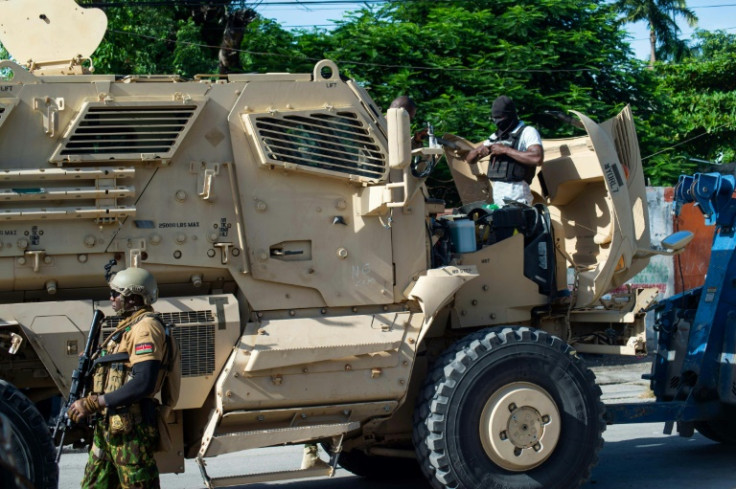
Jamaica is set to send two dozen police officers and soldiers to Haiti as the country continues to struggle in its fight against gangs in the country.
Concretely, Prime Minister Andrew Holness said the force will be comprised by 20 soldiers and four police officers. They are set to arrive on Thursday and will be tasked with providing command, planning and logistical support, according to Holness.
The country had pledged a total of 200 troops but the prime minister said deploying them all at once is not "practical." He specified that facilities to host them and command structure are still not fully in place.
"Haiti is the example of what could happen if states and governments do not take the problem seriously and put in place the measures and resources necessary to bring the problem under control," Holness said.
The deployment represents a very small portion of the 2,500 initially planned. Along with Jamaicans and Kenyans, it is expected that countries like Bahamas, Bangladesh, Barbados, Benin and Chad also send troops.
Bahamian Foreign Minister Fred Mitchell said on Saturday that it is not clear when the country will send troops. He added that the uncertainty answers to the possibility that the mission's dynamic changes, as the U.S. is reportedly seeking to turn it into a UN peacekeeping mission.
The possibility, reported by the Miami Herald, comes about two months after the first group of Kenyan police officers arrived in Haiti to spearhead the security force. There have been challenges in securing voluntary contributions for the mission, which costs approximately $200 million every six months to operate, as well as showing any results for it.
The potential switch would address funding shortfalls, as such missions are typically financed through member nations' assessed contributions. Additionally, it would provide the mission with better resources, such as helicopters and medical facilities, which the current Kenya-led mission lacks. And allow for the deployment of military forces from other nations, an area where the U.S. has struggled to gain support under the current framework.
However, this transition would require approval from the UN Security Council, raising concerns about whether member states, particularly China and Russia, would back the initiative.
Speaking at Haiti's main airport last week, Secretary Blinken highlighted some progress on the political and security landscape, but said there is need for more "funding, personnel, to sustain and carry out the objectives of this mission."
"In a couple of weeks, we'll be at the United Nations for the General Assembly. I intend to convene a ministerial meeting to encourage greater contributions to help meet Haiti's security needs, its economic needs, its humanitarian needs, as well as to renew the mission's mandate, which expires in early October," Blinken said during a passage of his speech.
© 2025 Latin Times. All rights reserved. Do not reproduce without permission.





